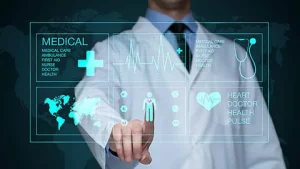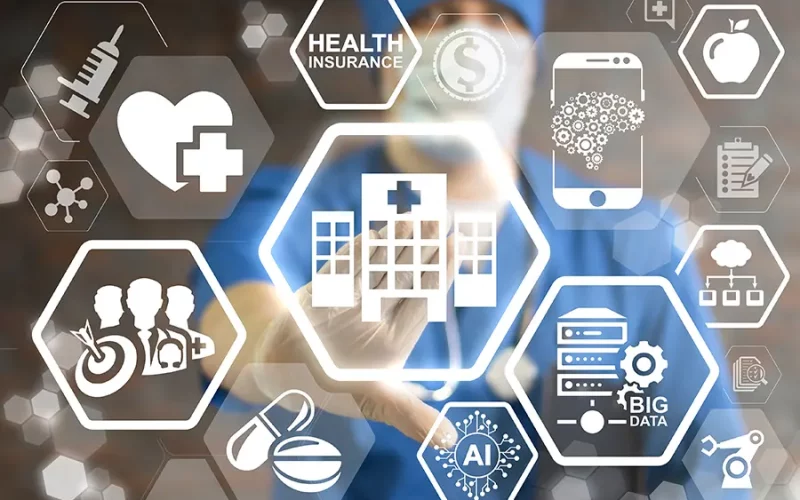In the contemporary era, the integration of technology and data analytics into healthcare systems has revolutionized the way public health challenges are addressed. Big data, characterized by its vast volume, velocity, and variety, plays a pivotal role in enhancing public health outcomes. This article delves into the significance of big data in public health, highlighting its applications, benefits, and potential challenges.
Understanding Big Data in Public Health

Big data refers to extremely large datasets that can be analyzed computationally to reveal patterns, trends, and associations, especially relating to human behavior and interactions. In the context of public health, big data encompasses diverse sources such as electronic health records (EHRs), social media activity, health surveys, genomic data, and environmental sensors. The ability to analyze these datasets enables public health professionals to gain deeper insights into health trends, disease outbreaks, and the effectiveness of interventions.
Disease Surveillance and Outbreak Prediction
One of the most significant applications of big data in public health is disease surveillance. By analyzing data from various sources, including social media, search engine queries, and EHRs, public health officials can detect early signs of disease outbreaks. For instance, Google Flu Trends was an early example of using search queries to predict flu outbreaks. Although it had limitations, it demonstrated the potential of big data in predicting disease trends.
Personalized Medicine and Genomics
Big data has paved the way for personalized medicine, where treatments and preventive strategies are tailored to individual genetic profiles. Genomic data, when combined with clinical data, can help identify individuals at higher risk for certain diseases, allowing for early interventions. This approach not only improves patient outcomes but also reduces healthcare costs by preventing disease progression.
Health Behavior Analysis
Social media platforms and wearable devices generate vast amounts of data on individual health behaviors. By analyzing this data, public health professionals can identify patterns in physical activity, diet, and other lifestyle factors. This information can be used to design targeted health promotion campaigns and interventions aimed at specific populations.
Environmental Health Monitoring
Big data can also be used to monitor environmental factors that impact public health, such as air quality, water quality, and climate change. For example, data from satellite imagery and environmental sensors can be analyzed to predict the spread of vector-borne diseases like malaria and dengue fever. This allows for timely interventions and resource allocation to affected areas.
Healthcare Resource Optimization
Hospitals and healthcare systems generate vast amounts of data on patient admissions, treatment outcomes, and resource utilization. By analyzing this data, healthcare providers can optimize resource allocation, reduce wait times, and improve patient care. Predictive analytics can also help in anticipating future healthcare needs and planning accordingly.
Benefits of Big Data in Public Health

Big data analytics provides public health officials with actionable insights that can inform decision-making. By identifying trends and patterns in health data, officials can prioritize interventions, allocate resources more effectively, and develop evidence-based policies.
Early Detection and Prevention
The ability to predict disease outbreaks and identify individuals at risk enables early detection and prevention. This not only saves lives but also reduces the burden on healthcare systems by preventing disease progression and complications.
Cost Savings
Big data can lead to significant cost savings in healthcare by improving efficiency and reducing waste. For example, predictive analytics can help in identifying high-risk patients who may benefit from preventive care, thus avoiding costly emergency interventions.
Enhanced Patient Outcomes
Personalized medicine and targeted interventions based on big data analysis can lead to better patient outcomes. By tailoring treatments to individual needs, healthcare providers can achieve higher success rates and improve the overall quality of care.
Challenges and Considerations
While the potential of big data in public health is immense, there are several challenges and considerations that need to be addressed.
Data Privacy and Security
The collection and analysis of health data raise significant privacy and security concerns. Ensuring that data is anonymized and securely stored is crucial to protect patient confidentiality. Additionally, robust data governance frameworks needed to regulate access and usage.
Data Quality and Integration
The accuracy and reliability of big data are paramount for effective analysis. Data from different sources may vary in quality and format, making integration challenging. Standardizing data collection methods and improving data quality are essential for meaningful insights.
Ethical Considerations
The use of big data in public health raises ethical questions related to consent, bias, and equity. It is important to ensure that data collection and analysis do not disproportionately impact vulnerable populations and that interventions are equitable and just.
Technical and Analytical Skills
Harnessing the power of big data requires specialized technical and analytical skills. Public health professionals need to trained in data science and analytics to effectively interpret and utilize big data insights.
Conclusion
Big data holds transformative potential for public health, offering unprecedented opportunities for disease surveillance, personalized medicine, health behavior analysis, and resource optimization. By leveraging big data, public health officials can make informed decisions, detect and prevent diseases early, and improve patient outcomes. However, addressing challenges related to data privacy, quality, ethics, and skills is crucial to fully realize the benefits of big data in public health. As technology continues to evolve, the integration of big data into public health will undoubtedly play a central role in shaping the future of healthcare.










